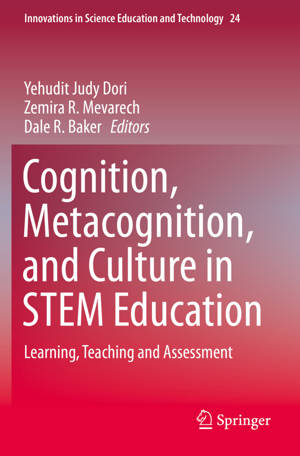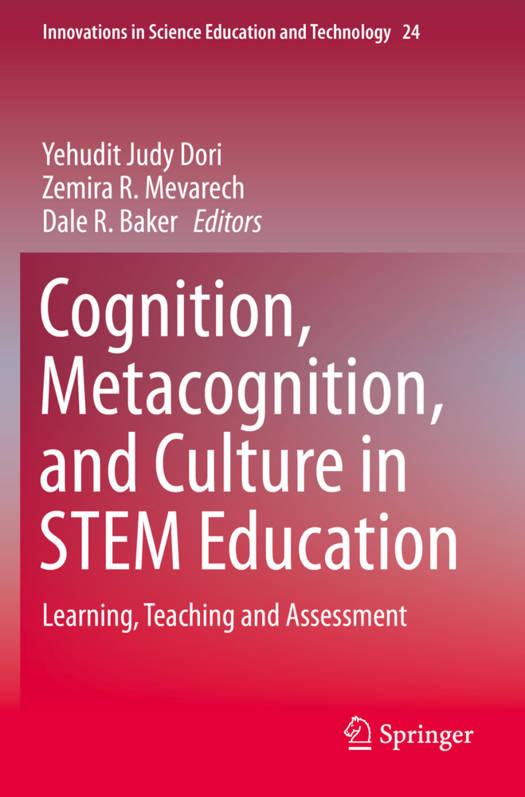
- Retrait gratuit dans votre magasin Club
- 7.000.000 titres dans notre catalogue
- Payer en toute sécurité
- Toujours un magasin près de chez vous
- Retrait gratuit dans votre magasin Club
- 7.000.0000 titres dans notre catalogue
- Payer en toute sécurité
- Toujours un magasin près de chez vous
Cognition, Metacognition, and Culture in Stem Education
Learning, Teaching and Assessment
147,95 €
+ 295 points
Description
This book addresses the point of intersection between cognition, metacognition, and culture in learning and teaching Science, Technology, Engineering, and Mathematics (STEM). We explore theoretical background and cutting-edge research about how various forms of cognitive and metacognitive instruction may enhance learning and thinking in STEM classrooms from K-12 to university and in different cultures and countries.
Over the past several years, STEM education research has witnessed rapid growth, attracting considerable interest among scholars and educators. The book provides an updated collection of studies about cognition, metacognition and culture in the four STEM domains. The field of research, cognition and metacognition in STEM education still suffers from ambiguity in meanings of key concepts that various researchers use. This book is organized according to a unique manner: Each chapter features one of the four STEM domains and one of the three themes--cognition, metacognition, and culture--and defines key concepts. This matrix-type organization opens a new path to knowledge in STEM education and facilitates its understanding. The discussion at the end of the book integrates these definitions for analyzing and mapping the STEM education research. Chapter 4 is available open access under a Creative Commons Attribution 4.0 International License via link.springer.com
Spécifications
Parties prenantes
- Editeur:
Contenu
- Nombre de pages :
- 380
- Langue:
- Anglais
- Collection :
- Tome:
- n° 24
Caractéristiques
- EAN:
- 9783319882956
- Date de parution :
- 09-09-18
- Format:
- Livre broché
- Format numérique:
- Trade paperback (VS)
- Dimensions :
- 156 mm x 234 mm
- Poids :
- 553 g

Les avis
Nous publions uniquement les avis qui respectent les conditions requises. Consultez nos conditions pour les avis.





